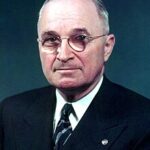The Historic Decision
On July 26, 1948, President Harry S. Truman signed Executive Order 9981, mandating military desegregation across all branches of the U.S. Armed Forces. This groundbreaking order declared “equality of treatment and opportunity for all persons in the armed services without regard to race, color, religion or national origin.” Truman faced enormous political pressure from Southern Democrats and military leaders who opposed integration. 📊 At the time, approximately 150,000 Black servicemen served in segregated units with limited opportunities for advancement.
Political Context and Courage
Truman’s decision came during a crucial election year when Southern support was vital for Democratic victory. The President had witnessed firsthand the valor of Black soldiers during World War II. He understood that military desegregation represented both moral necessity and strategic advantage. ⚠️ The decision risked alienating key Democratic constituencies in the South. However, Truman prioritized justice over political expediency, demonstrating exceptional presidential leadership during America’s post-war transformation.
Impact:
Immediate Military Transformation
Military desegregation fundamentally changed American armed forces structure and effectiveness. The integration process began slowly but accelerated during the Korean War (1950-1953). 🌍 By 1954, the military had become one of America’s most integrated institutions, ahead of civilian society by decades. Combat units reported improved morale and tactical effectiveness when integrated. The policy eliminated wasteful duplication of facilities and maximized human resources utilization.
Civil Rights Movement Catalyst
Executive Order 9981 provided crucial momentum for the broader civil rights movement. It demonstrated federal government commitment to racial equality before Brown v. Board of Education (1954). 🔥 The decision inspired civil rights activists and provided a successful model for integration efforts. Many future civil rights leaders gained experience and confidence through integrated military service. The order established important legal precedent for federal intervention in racial discrimination cases.
Long-term Historical Significance
Military desegregation proved that integration could succeed when implemented with strong leadership and clear policies. The integrated military became a pathway to middle-class success for countless African Americans. Veterans used GI Bill benefits to pursue education and homeownership previously denied to them. This landmark decision remains one of Truman’s most celebrated achievements, earning praise from historians across the political spectrum for its moral courage and practical effectiveness.
